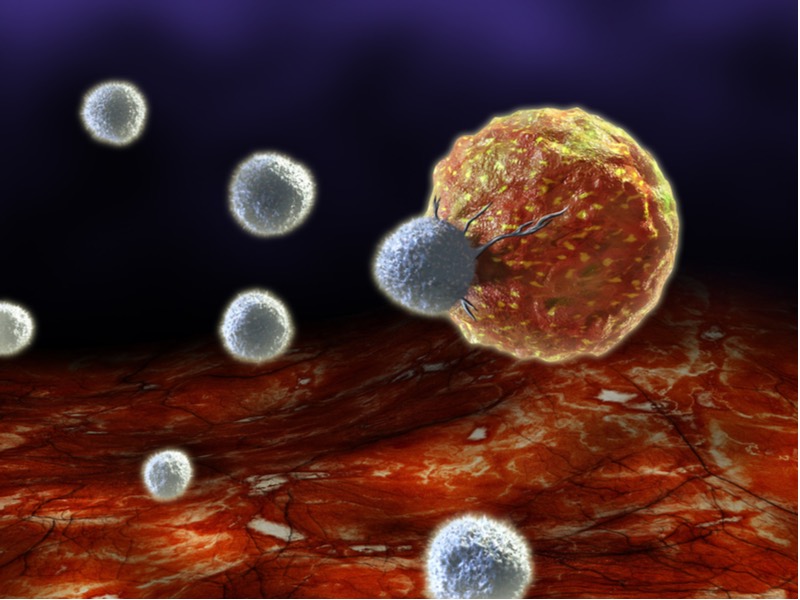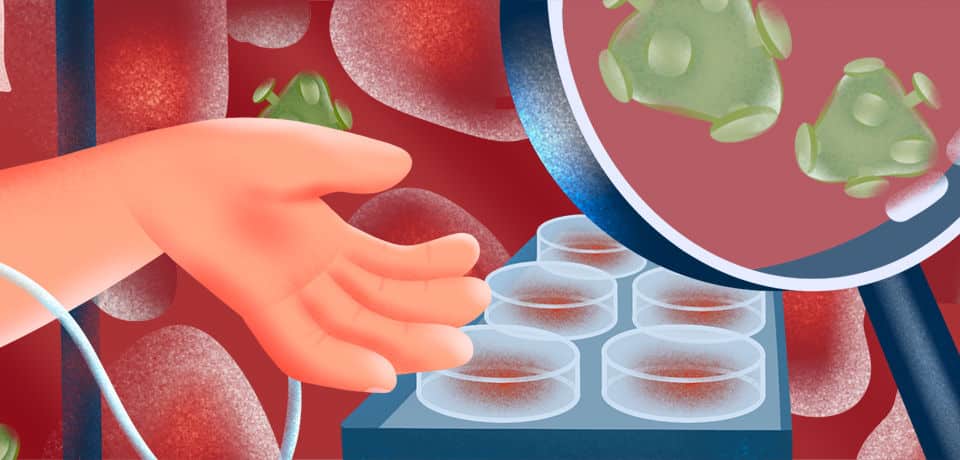Confidence in gene-edited T cell therapies from donor cells has faltered as Allogene Therapeutics paused all clinical development following the detection of an unexpected genetic change in a clinical trial. Industry experts see these events as a reality check for the nascent field.
Off-the-shelf treatments that use genetically engineered T cells to treat diseases suffered a blow to their image earlier this month when a gene-edited Chimeric Antigen Receptor (CAR)-T cell therapy, developed by the US biotech Allogene Therapeutics, encountered a safety concern in a phase I/II trial.
According to Allogene, a biopsy from a blood cancer patient infused with its CAR-T cell therapy revealed CAR-T cells with an unexplained chromosomal change. The company noted that the abnormality was found on a chromosome that’s also targeted by TALEN-based gene-editing technology used by the firm. It’s still unclear if the change originated from the gene-editing process, and what its clinical impact could be.
The FDA has put a hold on all clinical trials involving Allogene’s CAR-T cell therapy, which destroys cancer using genetically altered white blood cells from healthy donors.
Allogene’s share price tumbled more than 40% the day after the study results came out. The shares of French biopharmaceutical Cellectis, from which Allogene licenses gene-editing technology, dropped by over 20%.
Yet hope remains for gene-edited T cell therapies that are allogeneic, that is, involving donor cells. Unlike autologous CAR-T therapies, which are derived from the patient’s own blood cells, no allogeneic T cell therapies have received marketing approval to date.
“With respect to Allogene, it is important to bear in mind they have successfully treated in excess of 100 patients with their technology,” said Sven Kili, who co-chairs the International Society for Cell and Gene Therapy Business Models and investment subcommittee.
He pointed out that the affected patient had already failed multiple rounds of other treatment and the chromosomal abnormality was only picked up during a routine bone marrow biopsy for low blood counts.

Even so, others in the industry have been keen to emphasize the benefits of their own gene-editing technology in the wake of the announcement. The next day, for example, Verve Therapeutics CEO Sekar Kathiresan highlighted the advantages of his company’s base-editing approach on Twitter, stressing it was chosen for its safety profile. The company focuses its gene therapy pipeline on cardiovascular disease.
Results from a phase I trial released less than a week later by CRISPR Therapeutics brought further mixed news to the allogeneic CAR-T cell therapy field. The Swiss-US firm is developing a rival CAR-T treatment to Allogene’s using CRISPR/Cas9 gene editing technology. According to the trial results, 58% of the blood cancer patients responded to the treatment, but these responses seemed to drop quickly. Many of the participants failed to experience extended benefits at six months.
Gene-edited T cell therapies aren’t the only type of advanced therapy to have travelled a rocky road over the past 12 months. Many gene therapy players including BioMarin, Rocket Pharmaceuticals, and Astellas have had their own safety issues that led to pauses in clinical development. The US firm bluebird bio, which has had two gene therapies approved in the EU, was struck with multiple clinical holds due to safety concerns, as well as commercial woes that led it to wind down its operations in Europe.
“I do think that gene therapy … has certainly been in the doghouse this year,” said RA Session II, CEO and founder of the US firm Taysha Gene Therapies, at the Cell and Gene Meeting on the Mesa last week. He added that there is a balance to strike between the risks and benefits of such treatments.
Proponents of allogeneic T cell therapies maintain they could save valuable treatment time compared with autologous treatments already on the market such as Kymriah and Yescarta. Allogeneic therapies offer immediate use, the possibility of flexible, repeat doses, greater consistency, and simpler manufacturing, with its associated cost benefits.
“Maybe a ‘reality check’ is needed in the field of cell therapies, to reset shorter term expectations for the allogeneic ones,” said Bertrand Delsuc, CEO and founder of the business intelligence firm Biotech Radar, adding that the field is in its infancy.
Referring to the Gartner Hype Cycle, which tracks enthusiasm around new technologies, Delsuc said that we’re likely to be at “the beginning of the ‘age of disillusionment’ coming after the ‘peak of inflated expectations’. Then will come the ‘slope of enlightenment’. But the duration of each step is unpredictable at this point.”
According to Miguel Forte, CEO of the Belgian regenerative medicine company Bone Therapeutics, it’s important to understand the multiple elements at play in developing these products in order to get a better handle on the risks and benefits.
“Gene therapies … are the way to the future,” he maintained. “The path will continue to have challenges and learning from them will make these products, their use, and the benefit they deliver progressively more established. Learning through these events will place us in a better position to benefit from these very promising therapies that will become progressively part of our routine therapy.”
Cover image via Anastasiia Slynko. Body text image via Shutterstock.





